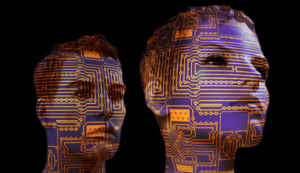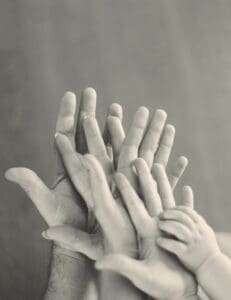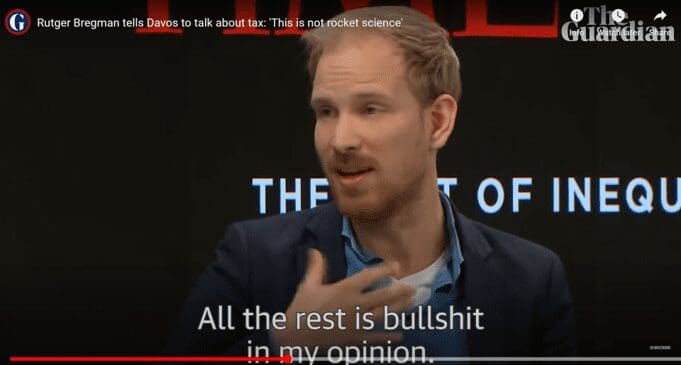By: Niall Flynn —
The Dutch historian has battled in favour of universal basic income and skewered tax-dodging billionaires at Davos. But his next project is his most ambitious yet: convincing the world that, deep-down, human beings are actually pretty decent.
Rutger Bregman was, by his own admission, an unremarkable student. Instead of the far-reaching curiosity that clearly drives his work today, the Dutch historian’s early years were best defined by a preference for coasting. School very much played second fiddle to video games.
But that all changed at university, when new friends introduced him to literature and philosophy. He quickly set about making up for lost time, driven by a near-obsession to devour as much information as he could. “It sparked some kind of curiosity in me that really went to extreme levels at some point,” he remembers. “In those years, I was always listening to lectures on my iPod. Even if I went to the toilet, there was some professor talking to me.”
Although he was a student of history, his academic interests extended out into psychology, sociology, anthropology and archaeology. Today, it sees him working as something of a generalist: he’s just as likely to be found writing about universal basic income in De Correspondent as he is going viral for berating tax-dodging billionaires at Davos.
It was the latter that helped introduce Bregman’s thinking to a mass audience, giving his 2014 book Utopia For Realists (a rallying cry in favour of open borders, UBI and a 15-hour working week) a second wind in the process. As he set about working on the follow-up, there was a genuine excitement regarding what he was going to come up with next. The result is Humankind: A Hopeful History, a book that employs 200,000 years of human history to present a radical idea: that we as a species are, deep-down, pretty decent.
If that hypothesis feels a little saccharine, it’s worth emphasising that Bregman isn’t saying that humans are inherently and wholly good. Rather, he argues we have evolved to be friendly, and it is this loyalty to our closest circles that sometimes inspires great cruelty.
Perhaps more tellingly, the book’s Dutch title is De Meeste Mensen Deugen, which translates as ‘Most People Are Deugen’ – ‘Deugen’ being a word that doesn’t really have an English equivalent. “It’s a verb,” Bregman says. “It sort of means you’re good after all, that you’re basically good. Deugen people can do very nasty things, but you kind of think, ‘In the end, maybe we could actually become friends, even though there’s so much noise between us.’”
That said, at the time of our conversation – just over a week after the murder of George Floyd – he acknowledges that an optimistic view of human nature might be harder to sell at the moment. But he’s resolute when it comes to his work and razor-sharp in defending it. Throughout the duration of our Skype call (which he answers on the first ring), he exhibits a measured charisma, using his research to try and make sense of current events without ever failing to recognise their severity.
“It is a bit strange. Today is the publication date of my book in the United States – a book about hope, about how human beings have evolved to be friendly – and you turn on the television and you see the savagery of police. It may be hard for people to believe in the good of humanity right now. Even though I think it’s exactly what we should do.” (The Davos Video can be found here: https://www.youtube.com/watch?v=r5LtFnmPruU)
___________________________________________________
Your speech at Davos helped introduce your work to a much larger audience. Is it fair to say that it changed your life?
I think it did. It went totally viral, which was a very bizarre experience, and it gave me the opportunity to talk about the things I’d been writing about for years before that. The strange thing is that my book, Utopia For Realists, was published in Dutch in 2014. The idea of universal basic income [is] very old, but back then it was almost forgotten. Now it’s moved into the centre of the discussion again. Suddenly, I had the opportunity to talk about it on the Daily Show. I was very grateful for that.
It’s been over a year now since that speech went viral. I know you were recently encouraged to see the Financial Times come out in favour of universal basic income. Do you view that as significant progress?
I have seen a huge amount of progress. As I said, just five or six years ago it was inconceivable. Now, to see the Financial Teams advocating it – as well as Andrew Yang in the U.S. with his hugely successful presidential campaign – it is one of the ideas on the menu. It doesn’t mean it will be implemented tomorrow, but the chance of that happening in the next couple of years has gone up by a couple of ordered magnitudes.
It’s not only UBI. Think about a Green New Deal. Also, there’s been an extraordinary amount of ideological and intellectual progress on higher taxes on the rich.
If you look at polls, the vast majority of people – even right-wing conservatives – want higher taxes on the rich right now. The war of ideas, it’s clear who’s winning that. You look at someone like Joe Biden and think, ‘He’s such a boring moderate.’ And he is, obviously. But his climate plan, for example, is more ambitious than Bernie Sanders’ climate plan of 2016. It’s by far not ambitious enough, but if we zoom out, then you see that things are moving in the right direction.
Humankind evolved from some of the debates you were having around universal basic income. Was human nature something you were thinking about much before that?
Well, one of the reasons I started writing this book is because I noticed discrepancies between the policy ideas I was advocating and my own view of human nature. I was interested in things like UBI and participatory democracy – all of these ideas seemed to assume a more hopeful form of human nature. But then I looked at my own thinking and I realised I had written about things like the Stanford Prison Experiment, about the demise of Easter Island. My own view of human nature was much more cynical.
This book was a journey to resolve that. But yes, it very much grew out of the previous book. Because the most common objection people have to UBI is: ‘It’s not going to work, because people are selfish and lazy.’
All of these hopeful ideas, they presuppose a more hopeful view of who we are.
It’s impossible to embark on a discussion about human nature without first acknowledging the murder of George Floyd. Have events in the U.S. – and across the world – impacted how you think about your work?
You know, if I could summarise my book in one sentence, it would be something like, ‘Most people are pretty decent, but power corrupts.’ I think that’s a good summary of what we’re seeing in the U.S. as well.
There’s an old theory within western culture that we call veneer theory, which says civilisation is only a thin veneer, and people have to be controlled by those in power – because otherwise they would become savages.
So a cynical view of human nature has been used to legitimise hierarchies, power differences and oppression.
It’s being used in that way again. When Donald Trump says, ‘When the looting starts, the shooting starts’, he is invoking veneer theory. He is saying, ‘Civilisation is breaking and you need those in power to restore law and order.’ If you look at what’s really happening, it’s obvious that the real savages are not the millions of peaceful protestors in the streets. It’s not even the people looting right now, even though it’s a very small minority and I don’t think we should even be talking about it.
What should we be talking about?
There was one headline from Slate that I really liked, that said, ‘Police Erupt in Violence Nationwide’ – which is basically what we’ve seen happening. I don’t think that as soon as you put someone in a police uniform that they become automatically like this. There’s a long process of institutional racism and dehumanisation, structural inequalities, and just terrible, terrible
policing.
The police force, it’s so broken in the U.S. right now. The best thing is to completely defund the whole thing and just start over again. I think there are great examples around the world – look at Scandinavian countries – of police forces that actually do quite a lot of good work a lot of the time. It’s what we call community policing, where the police are like social workers and they consider their job to build really good connections with the community, so that they are allies in fighting serious crime. These kinds of police don’t wear weapons, some don’t have to wear uniforms. It’s about trusting other people.
In the U.S., you’ve got the complete opposite. The training is so crap. On average, police officer training in the U.S. takes 18 or 19 weeks. In most European countries, it’s over two years. I’m not saying we don’t have issues in Europe, but there are real differences as well. 90 per cent of cops in London don’t wear guns. The philosophy here is that you only escalate things by walking around the streets with weapons. What we see in the U.S. right now is savagery from those at the top. They are corrupted by their power. They look at other people and they think that other people are exactly like themselves: savage, violent, aggressive. They don’t realise that, actually, they are the problem.
As a white man who, to the best of my knowledge, has lived a relatively comfortable life, it’s much easier for someone like you to author a hopeful history. Is that something you’ve thought about – the position of privilege from which you’ve been able to platform the argument?
Yeah. It’s simply true. It has been much easier for me to write a book like this. I have many other privileges as well – the freedom and the time. But even then, even if you recognise my privileged position, I think we can still agree that there is something going on in science – so many scientists from diverse disciplines are moving to a more hopeful view of human nature. Part of that is based on the behaviour of people who are way less privileged than I am. Think about what we’re seeing right now, people who have suffered from centuries of violence and oppression and racism, yet they’re still courageously, peacefully protesting in the streets; protecting each other, taking care of each other. That is proof, right? That is very powerful
proof.
Rebecca Solnit has written two powerful books – one is Hope In The Dark, the other is A Paradise Built In Hell – about how people respond to disasters. What you see is an explosion of altruism and cooperation, every single time. People on the right, the left, young, old, rich, poor, all working together and helping each other. If you watch a lot of cable news, which is exactly what those at the top want you to do, it’s very easy to become pessimistic and cynical. It’s easy to focus on the ‘looting’ and the ‘violence’ and the ‘riots’. In the case of Katrina, by the way, almost all of that was nonsense; fiction.
But yeah, it’s a really important point, and I think I really have to recognise that. But at the other end, I wouldn’t say that people who are way less privileged than I am would disagree with me. So many lessons in the book are taken from their perspective. I have one chapter about successful protest movements. Something that activists have known for a long time – but something that has only recently been confirmed by science – is that peaceful protests are usually more successful than violent protests, because they draw in 11 times more people on average. That’s not to say that it’s not legitimate to use violence right now. What did Martin Luther King say? ‘Riot is the language of the unheard.’ But as I said, the vast majority of people are protesting peacefully. They have such an impressive command of self-control, while the police are just going nuts and acting like total savages.
If we look at violent and peaceful protest throughout history, they often both play necessary roles in the process of a larger struggle. Even if it’s not always that clean or linear.
Yeah. It’s really the responsibility of journalists and the media to put things in context. If you look at cable news, even when they say, ‘The majority of people are peaceful’, they still focus on a small minority looting. They are responsible for that, for changing the conversation. It’s exactly what the Trumps of this world want. They are basically doing, in a way, his job. People at the top want us to be fearful of each other, because it’s easier to rule people who are scared.
Only if we realise that most people are actually pretty decent, can we work together and actually believe in the project of building a more egalitarian and genuinely democratic society.
I really believe that, despite everything, believing in the good side of humanity – not saying that we are angels, but believing that most people are actually pretty decent – is an effective defiance right now.
I find the way you talk about news consumption refreshing. How do you navigate the balance between staying informed, but not letting the news cycle consume you to the point of stasis?
I think it’s important to make a distinction between the news and journalism. Obviously we need good investigative journalism, journalists that help us to uncover the structural forces that govern our lives, that keep those in power accountable, keep them in check, speak truth to power. It’s an incredibly important function and people should pay for that. Get a subscription to whatever good publication is doing that – it‘s your duty as a citizen in a democracy.
But when we talk about the news, which is sensationalist, incidental reporting, mostly on the negative stuff… I really think it’s not good for you. It’s like a drug, it can be very addictive, and it damages the brain – it makes you more cynical, more anxious, more depressed. There’s even a term for this in psychology, they call it ‘mean world syndrome’. When people are scared and anxious, they become cynical and they don’t act any more. They’re like, ‘What’s the point anyway?’ So I think we need to think really carefully about what kind of information we put in our heads. Just like we
think really carefully about what kind of food we put in our bodies.
It doesn’t mean that you should plug out. I really don’t believe that. But just think about your media diet. Is it helping you? Does it give you energy to change something, to do something, to contribute? If yes, then you’re doing the right thing. But is it making you depressed, anxious and cynical? Do you want to sit in the corner with your arms over your head? Then maybe something is going wrong there.
When we look at the past few months, there’s a lot of talk about how we can build a better future out of the embers of crisis. Do you believe that will happen?
I don’t know! [laughs] It’s very easy to imagine how this crisis will lead us down a very dark path. We know that, throughout history, crises have been abused by those in power. Burning of the Reichstag, Adolf Hitler. 9/11, two illegal wars and massive surveillance of citizens by the government. We’ve seen that happening many, many times. We see it happening in the U.S. right now, we see it happening in Hungary. There’s a lot of reason to be pessimistic about this.
On the other hand, there’s a lot of reason to be optimistic. We’ve talked about the shift in ideas – so many ideas that move from unrealistic to acceptable that are now on the menu. We’ve seen governments around the round publishing lists of the so-called ‘vital professions’. You look at these lists and you think, ‘Where are the hedge fund managers? Where are the people in Silicon Valley who make these algorithms that let us click more on ads and buy things that we don’t need?
Suddenly, it’s very clear who’s doing the real work. Who’s really useful in our society. Often, they don’t have very high salaries, they don’t have the protections they need.
The failure of a certain kind of thinking is so obvious right now. In the U.S., they can’t even get the right protective gear for doctors, but they can equip tens of thousands of police officers like they’re soldiers in the army. You have a government that is better at killing its own citizens than it is healing its own citizens. But it’s so clear right now that this old way of thinking – this capitalist model – is broken. So I think there is room for real change. If that will happen, I obviously have no idea. As a historian you know you can’t predict the future. But you can sketch the narratives. And this is a scenario that gives me hope.
But on the other hand, I can’t help but think about how the financial crisis of 2008, for instance, resulted in a period of prolonged austerity and suffering in the UK.
That is possible. But I do think there are real and important differences between 2008 and now. That was a financial crisis, because it was relatively easy to blame those who had taken on debt, or something like that. To blame the victim was very easy back then, instead of blaming the bankers, the perpetrators. Because it was hard to understand what a credit default swap was, or a derivative. But now, everyone understands what a virus is. Everyone sees the blatant failure of government.
Also, in 2008, people mostly knew what they were against. But they didn’t really know what they were for. Now we really have those alternatives on the table. We have done our homework, there’s been a lot of intellectual progress in the past couple of years. That gives me hope. There are interesting examples in the UK. If you look at the financial spending of the current Conservative government, it’s actually closer to the Labour pledge of 2017 than to its own manifesto. Which is sort of interesting.
Which movements give you most hope right now?
Six years from now, if you would have told me back then that there would be this climate justice movement kick-started by a 16-year-old Swedish girl, that Thomas Piketty would become a rockstar around the world with a book about growing inequality, that there would be this new generation of female economists like Mariana Mazzucato…. well, all these people really give me great hope.
It feels to me that there is a real generational difference here as well. People often say, ‘You’re progressive and left wing when you’re young, conservative when you’re old.’ That’s really incorrect. If you look at history, in the 1980s, who was most popular among those that were young? In the UK it was Thatcher, in the U.S. it was Reagan. They enjoyed their biggest popularity among the youth. Now those people have got old and they’re the ones ruining society; they’ve become the status quo. Imagine in the UK, if only those under 30 could vote. Or those under 40. Labour would win everywhere! Change is coming, that’s very clear. The question is how much time do we have.




















